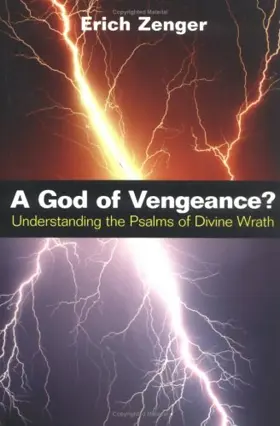

A God of Vengeance?: Understanding the Psalms of Divine Wrath
Pages
120
Publisher
Westminster John Knox
Published
2004
ISBN-13
9780664256371
With both careful and rich exegesis of the psalms, Zenger recovers these as important liturgical and theological resources for the church. It is especially helpful to pastors and others in the planning of public worship.
Reviews
A God of Vengeance?: Understanding the Psalms of Divine Wrath Louisville: Westminster John Knox, 1996. Pp. xii + 104, Paperback, $12.99, ISBN 0664256376. W. H. Bellinger, Jr. Baylor University Waco, TX 76798 Erich Zenger of the Roman Catholic theological faculty at the University of Münster has begun to find a significant voice in contemporary Psalms studies. His writings have raised important issues for interpreters of the Psalms, and this treatment of the imprecatory psalms is no different. This translation of his 1994 volume is a welcome addition for students of the Psalms. The motivation for the volume comes from contemporary developments in church and society. Moves by church leaders to remove psalms of divine wrath from use in the church's liturgy and the troubling presence of violence in western culture led Zenger to the topic. The volume is a piece of biblical theology which seeks to address an important topic in Psalms study and integrate the findings into the life of the church and contemporary societal issues, though the integration is clearly selective and suggestive. The opening chapter describes the problem. The Psalms have been important in the life of the church over the centuries and yet they are pervaded by violence and conflict with enemies. Scholars and theologians over the years have rejected the imprecatory psalms because they are seen to be in conflict with the NT emphasis on the love of God and the command to love one's neighbor. Others reject these texts simply because they seem to drown in violence. Zenger understands these responses as a reassertion of the ancient Marcionite heresy and sets out to reclaim these texts for the church. He believes they are an important voice against violence and injustice and can lead to productive reflection on attitudes toward a contemporary world of violence. The next chapter treats the various psalms. "Dialogue partners must be taken seriously if we want to understand and communicate with them, even if it be to disagree with them." (p. 25) Contemporary readers must take these psalms seriously and seek to understand them in all of their "foreignness.
[Full Review]
